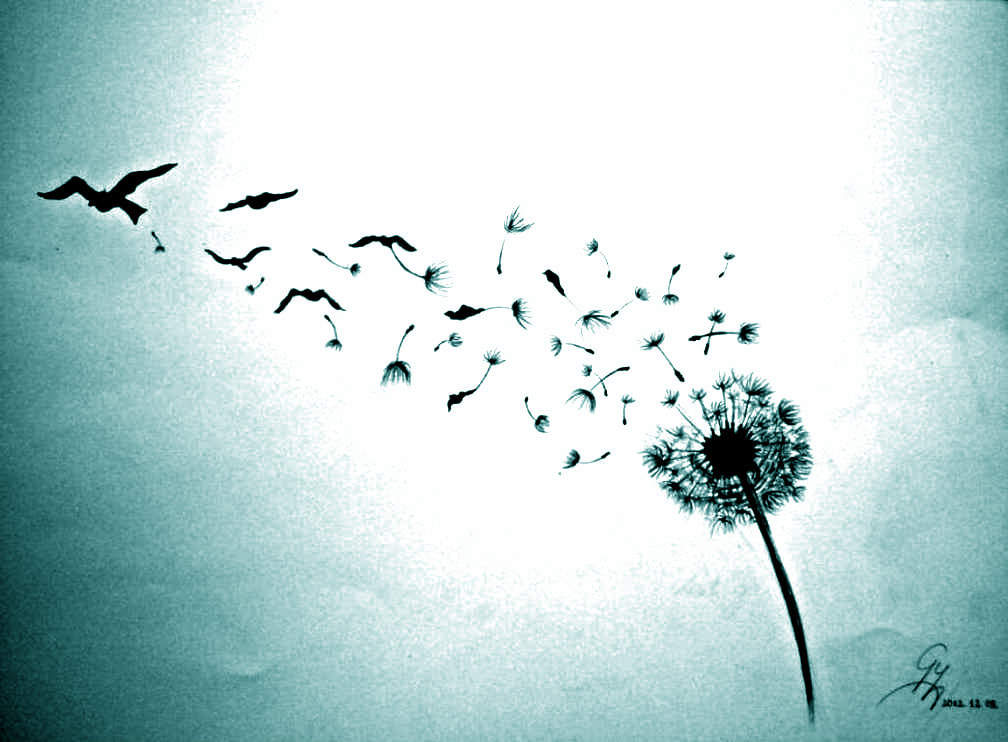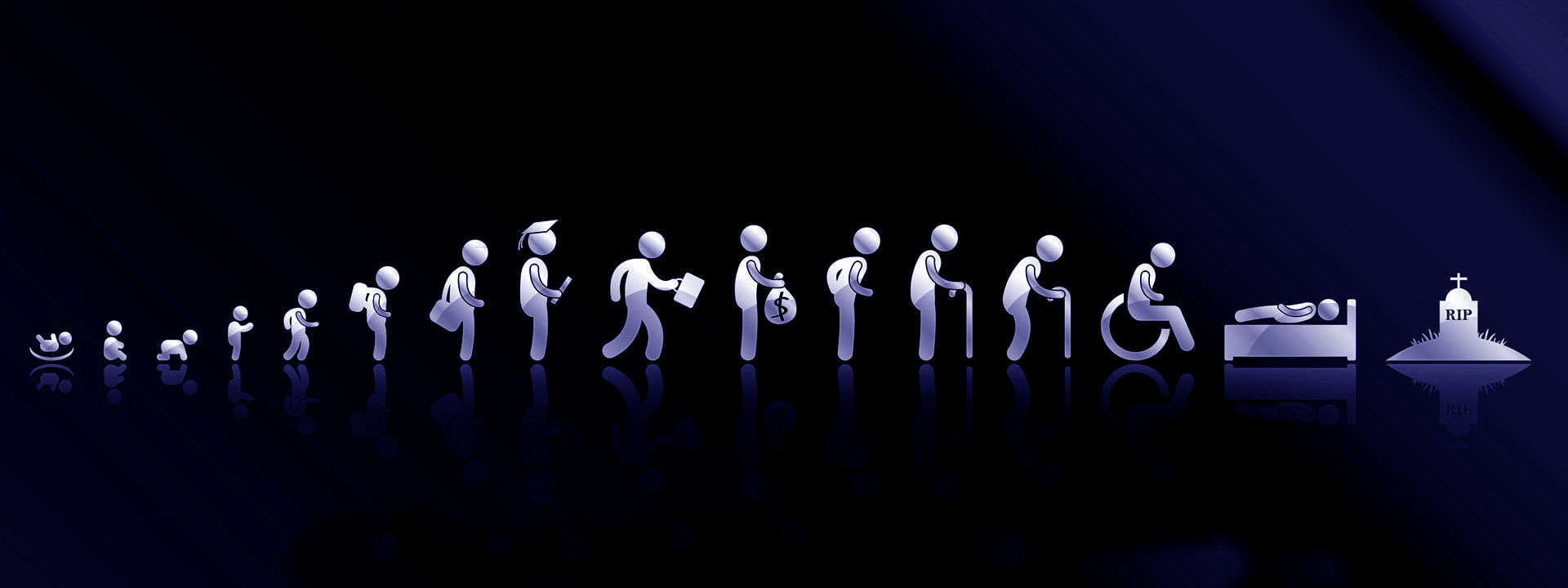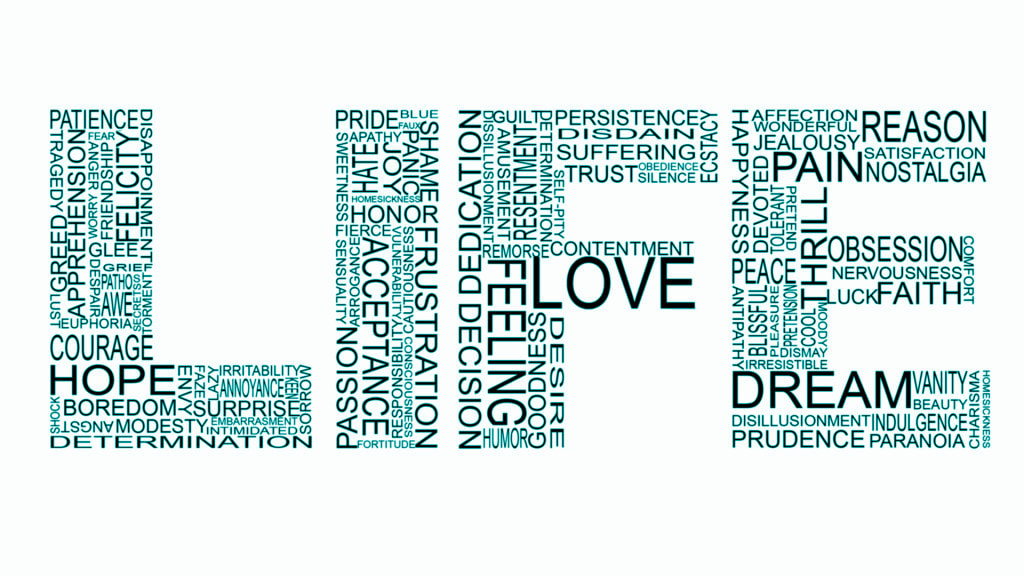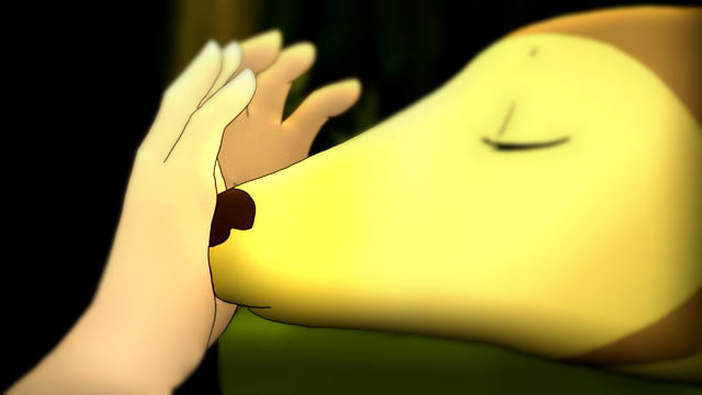|
What can I say, death is a recurring theme for me right now. Yes, it's not fun, it's not cool, it doesn't sell, but it's the situation I find myself currently in. Actually, it's the situation I have been in for the past few years. It might seem very sad, but living in this situation was the seed to a deep transformation for me. Because... Do you know what happens when you live with the concept of death in your daily life? It turns out that life itself becomes so much more precious, or at least that is my personal experience. The realization that one is alive, and the others around you are alive too, makes life REAL. And precious. And beautiful. And incredibly, unbelievably AWEsome. I realized that I am truly, deeply in Awe of life. My family, my feline children are now 17 and a half years old. A beautiful age for the five of them. I am lucky enough for having the economic means to offer them all the care they need, but not only that. I am BLESSED for being able to give them the attention and the love they deserve in this phase of their lives. Not always, not all I would like to give them, but a lot. On one hand, being aware that my family will cease to exist in a relatively short amount of time really takes a toll. And if you are reading this, please know that I am not very good at asking for help, probably due to the fact that most of the time I honestly don't need it. But sometimes I do :-), I know of nobody who is independent enough to live his or her life without anybody else, and I'm not an exception. If you read this, please take it as my way of telling you that sometimes, even if my mouth automatically says "it's all good", if you are available, really available to listen, maybe I will share with you that sometimes "it's not all good". On the other hand, the truth is that I am accompanying my loved ones in their LIVES, and only at the very end, in their deaths too. Realizing how lucky I am to be able to do this is the blessing. The reality is that they are not dying, they are LIVING, and I CELEBRATE their life. How could I not! Because life must be celebrated, right? To me, up to a certain point. I have witnessed with a ravished heart, that life is absolutely tenacious. Which is an extraordinary thing at certain moments when there is even one chance to "make it", but it can be a kind of curse at others. A living being does not want to die... it's as simple as that. He or she can be at the very end, enduring unimaginable pain and distress, and yet life will not let go. But there comes a point when there is no more future than agony. Right now, both for humans as for other animals, many of us have at our disposal several methods for... sustaining life? Or, in some cases, prolonging death? So, what choice shall be made when that difficult, horrible moment comes, when somebody needs to decide whether to live or die, or even (and this is yet more harrowing) decide if somebody else should go on living or not? In short, what is the rule in those cases? To me, there is no rule. I look at society's insistence in finding a rule that can accommodate all cases relating to the matter of Life VS Death under its umbrella, as the very human need for avoiding a heart-wrenching decision in such instances. It's understandable, and I really wish there was a rule that could be applied in all those kind of situations, a rule we could all abide by with a light heart knowing with absolute certainty that we made the right choice (this also includes the matter of abortion which, of course, is also a case of Life VS Death). But life is so much more complex than that. Life can't and won't be regulated, no matter how ample an "umbrella" might be. There is no rule that will help us decide, with absolute certainty and light heart, on life or death. Life is too vast for a simple human-made rule. Life gives us millions upon millions of "exceptions" that are nothing else than life itself. We are all unique individuals who live unique situations through time, at each point of our lives. After having had to take this decision too many times I know deep, deep down, that this choice is something that can only be made every time anew, considering each being and each situation. Every single time. I so wish there were a rule, it would make it all so much easier. But there can't be. We are hence left to decide. Every single time, battling nowadays with legislations that try to put life itself in a box, albeit ample, but never vast enough. Life, simply, won't be put in a box. It is telling that physicians, a large percentage of all medical personnel and particularly specialized doctors, nurses and caregivers, prefer not to opt for many of the modern "life-extending" technologies they have at their complete disposal. Over 75% of physicians will not subject themselves to reanimation procedures, and reject "live-sustaining" measures. Many oncologists and medical personnel working in oncology wards, would not receive chemotherapy treatment. And the list goes on. Why is that? Mainly it's because they know what those procedures really do to the human body, psyche and spirit, which is usually an increase of time "lived", but at the loss of a large percentage of quality of life. So, why do WE, the laypeople, choose those measures? I see several reasons for that. We don't know what they really mean, what the procedures themselves really do to us. Did you know for instance that being put on a ventilator means to artificially suppress your own breathing rhythm? Can you imagine how utterly distressing that is? Did you know that CPR is such a violent technique that it can and will break ribs in over 80% of the cases, possibly causing lung and heart perforations? And that it is fully effective for only 3% of the people who receive it, while another 2% will suffer from severe and deep deterioration of their health? And that another 3% will end up in a vegetative/comatose state? All this for such a "simple" (compared to the rest) intervention? The list goes on. Extreme life-sustaining measures are NOT "for free". There are great tolls to be "paid" with our health (or with the health of our dear ones) by having them applied to us (or to them). To be completely honest, I personally will want any and all life-preserving and life-sustaining measures available to be applied to me in case of a sudden trauma. But after that, after life has been preserved, and depending on the situation, I will decide on whether to go on living or not. Or hope that the people next to me will have the courage to take that kind of decision. And in case of a degenerative illness, I know that there will came a moment when I will say stop, it's enough. To me, not all life is life-worthy. Plain biological functions of my physical body are not enough for me to consider them life. Unbearable pain is not life. Biological life without hope of remission or improvement is not how I want to be kept in this world. And of course, this puts me in the position of having to take that same decision for the beings I love, when they find themselves in a similar situation. And even if I know there isn't... I so wish that there were a rule. Another reason is, of course, that all those procedures derive earnings to the centres that apply them. There's basically no economic gain in letting someone choose to spend their last days/weeks/months/years at home with their loved ones, relying only on pain medication. We all know that hospitals and clinics work with a budget, so do all public health systems too. There will be no legislations that allow or even encourage medical personnel to be open about the reality on this matter, no protocols implemented by hospitals and clinics. Not only because it's a sensible issue for the patients and their families, but also because to a centre that works on a budget, economically speaking it doesn't make any sense. It's also a matter of "Quantity VS Quality": more time spent on this Earth and less quality of life (often basically none) VS a shorter time but a better quality of life. And really, who could blame anybody for choosing the first option? After all, we do live in a society where the notion that "More" is preferable to "Better" is shoved down our throat at all time. More food for the same price in every restaurant, "Pay 2 Take 3" in every supermarket, "Make more of your buck", more, more, more, even if we all know perfectly well that quality comes at a price. Discount insurance policies that don't respond when the time comes to assist, clothes that can only be washed a couple of times before they fall apart, even buttons on our screens for making more an more "friends" who... will they be there with us when we really need them? More, more, more. But... "better"? Where's the Quality of what we take home, what we introduce in our lives, in our hearts? We don't usually think about that, because we are constantly presented with the notion that "More quantity" IS superior than "Better quality". So to me it's not surprising at all when we choose "More time", instead of "Better time". We were raised like that. But I think that the main reason, the most human of all, is that WE WANT TO LIVE. And of course we want our dear ones to do the same. But here I think that there is an all-encompassing ignorance about what the real cost is, of keeping someone "alive" under such extreme circumstances. I am more than sure that, if people outside the healthcare profession knew what some of those "life-sustaining" procedures can actually do to preserve our biological functions (or those of our dear ones) as well as their all-pervasive side effects, many more people would accept death as the best way of living. Even if it's for just a few more hours, a few more days. In fact, those who know all that, mostly elect not to "take advantage" of those "life-sustaining" measures, because they know that they don't really prolong life as we understand it, but only our biological functions. And we are much more than that. And our loved ones are much, so much more than that. I had to think a lot about life and death in the last few years. It's the path that was laid before me and the one I chose to take (albeit mostly unconsciously, I must confess, but here is where I am today, no point not accepting it). My conclusion on the matter of Life VS Death is that this matter can only be dealt with on a case-to-case basis, and that definitely life at all costs is no real life. Being a vegan for several years, I had to come up with my personal definition of what "vegan" means. If you are not vegan, you might be surprised to know that there is no stone tablet from a mountain with the "divine" definition of the deep meaning of vegan. The basis of veganism is of course the recognition and the respect for the lives of others, mostly through the non-use of any animal products... But when the issue of the definition of Life itself is raised, there are as many opinions as there are vegans. To me (and yes, this applies also to plant beings too albeit on a different scale, such reality is one I have to live with, but that's a story for another moment), the definition of veganism is: "The right of any living being to live a life-worthy existence without any imposed suffering". The "imposed suffering" part is because life entails suffering, as simple as that, There's no way to avoid all suffering, but each of us do have the option of NOT imposing suffering onto others, at least every time we are aware of doing so. This choice has, as a side effect, the ethical obligation to look deep into ourselves, empathizing at the same time with others, to make sure that we don't impose suffering on them without realizing it. And WE DO, much more often than we think possible. It's a long journey, an incredible and (to me at least) never-ending discovery that changed my life more profoundly that I could have ever imagined when I took the fist step. It still goes on and I suppose it will until the end of my life. The "life-worthy existence" is the part I am writing about here... Not all life is worth living just because "it's life", at least to me. There are occasions when life is much, much worse than death. In my eyes death is an inextricable part of life (and not just my death), but we CAN avoid the most horrible, hopeless suffering. It makes (to me) no sense to accept that kind of suffering only for the sake of maintaining biological life. I came to this conclusion mainly BECAUSE I'm vegan. It's because I'm vegan that I can't accept life at all costs. We basically forgot that death is an intrinsic part of life. We live in a society where life is the only side of the coin we want/choose/are encouraged to consider. Death is avoided almost at all costs. It's there, of course we know it's there, but it has become a sort of floating, disembodied and very abstract "notion" that hits us like a freight train when we are inevitably confronted with it... Our notion of death is so warped that (and this is something that I witnessed myself) when the father of one of my friends was on his death bed, the only thing she could say was "why, oh why is this happening to ME?". We don't know death any longer, it's not a part of our lives, so we are terrified by it and have basically no coping and protections mechanisms when we are inexorably confronted by it. Only a couple of generations ago, death was still part of family and community life, family members cared for their loved ones until the very end, and then washed and prepared their deceased as part of their farewell rituals, even children were in contact with the reality that life ended at a certain point, there was really no way of avoiding it. With the advent of "civilization" death has become something we'd rather not think about... We let "professionals" handle our loved ones when they fall sick and eventually die, it might be too painful for us, although I honestly think that by doing so we have given up a fundamental part of the process of saying goodbye, of letting them go, of getting closure... Death is not a part of family and community life any longer. As we know, death is now a business which is conducted with extreme discretion, almost to the point of stealth and secretiveness, to avoid "negative" emotions like the pain of a loss. And as for everything else, fear comes from things that are alien and distant to us. I personally find it really sad that those once unavoidable tasks have been lost in the "civilized world". In my opinion the loss of those practices is even more sad than having to touch, caress, wash, care for the lifeless bodies of our dear ones. And again, life has given me too many of those opportunities, this is just my opinion based on my experience. Personally I have come to imagine those "negative" emotions we strive so hard to eradicate from our existence, in this case sadness, loss, even dismay and desolation that come from the passing of a dear one, as a spring rain. When I feel them, especially if they are deep and strong, I visualize my cells and I allow the emotion to permeate each one of them. After its work is done, after the necessary time has passed, this emotion exits from the bottom of the cells (eh, I live in a world of gravity, my visualizations work like that ;-) ) to enter and permeate the next cells. It's hard while the emotions go through every fibre of my being. It's really hard. And it can take a long time for a specific emotion to complete this process of going through all my cells. But when it is finished with its work, when the process is done, I look back at my cells and I can see them sparkling!!! The emotion, the one we define as "negative" has done its job, has cleansed them all, deeply. It has gone through all of them and, through the pain, it left them shiny and clear. It's as if a spring rain has renewed them completely, and left them incredibly clean, infusing each one of them with new... life. On the contrary, the more we oppose the process of our emotions going through each one of our cells, as to say the process of grieving, the more the emotions in question get stuck in our body, mind and soul. We can carry with us an emotion related to a certain life event for a long, long time, if we don't allow it to go its natural course... And even if this process of "cleaning up our cells" is at times very painful, not allowing it to happen can be very detrimental for our health, on a psycho-emotional level as well as on a physical one. And on this note, my first instinct was to apologize for writing a post on such a sad subject, but I'm not going to do so. Life is like that. Sadness, even if we have relegated it (together with all "negative" emotions) to the same out-of-sight place as death itself, is still part of life. And today I'm simply feeling like that. Tomorrow, an hour from now, a minute from now, I might be feeling otherwise, possibly because I could share my sadness this way... So, as a thank you for listening, I give you this beautiful work. Laura
0 Comments
|
The AuthorA Mind full of Ideas Archives
June 2018
Tags
All
|




 RSS Feed
RSS Feed
